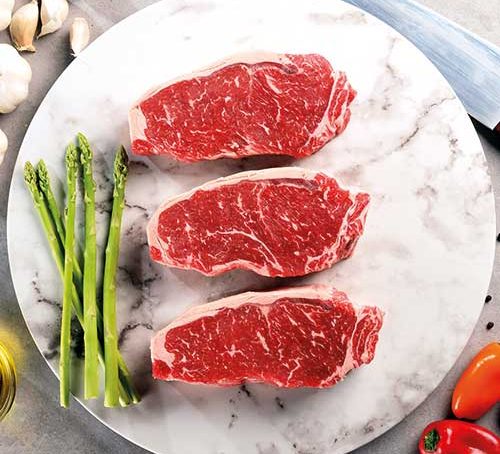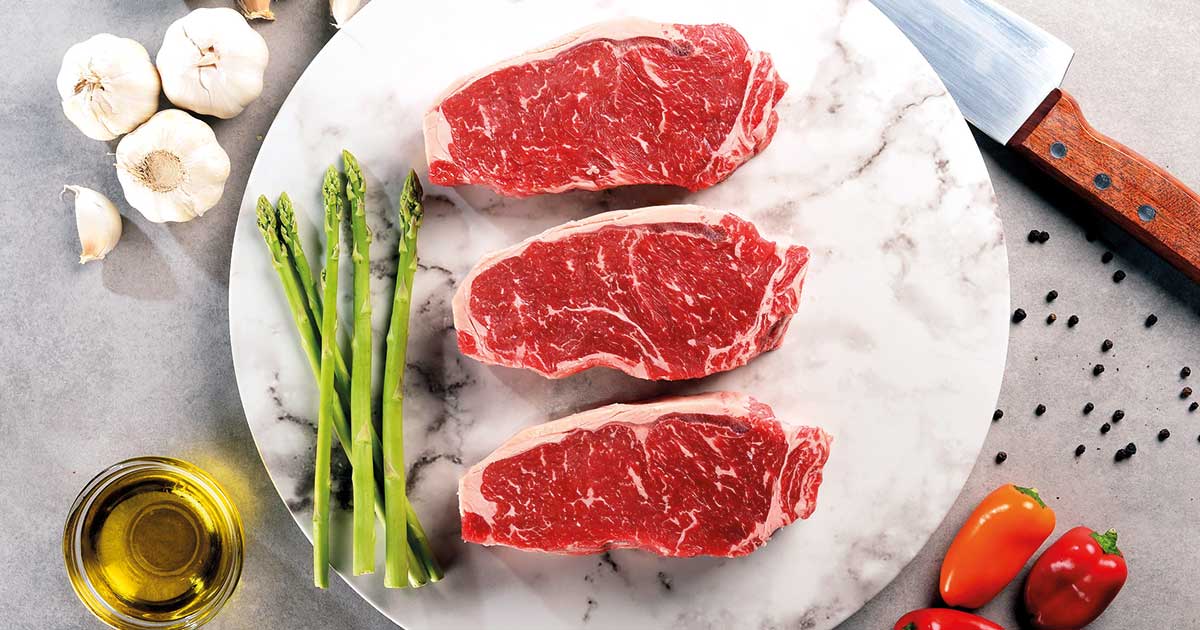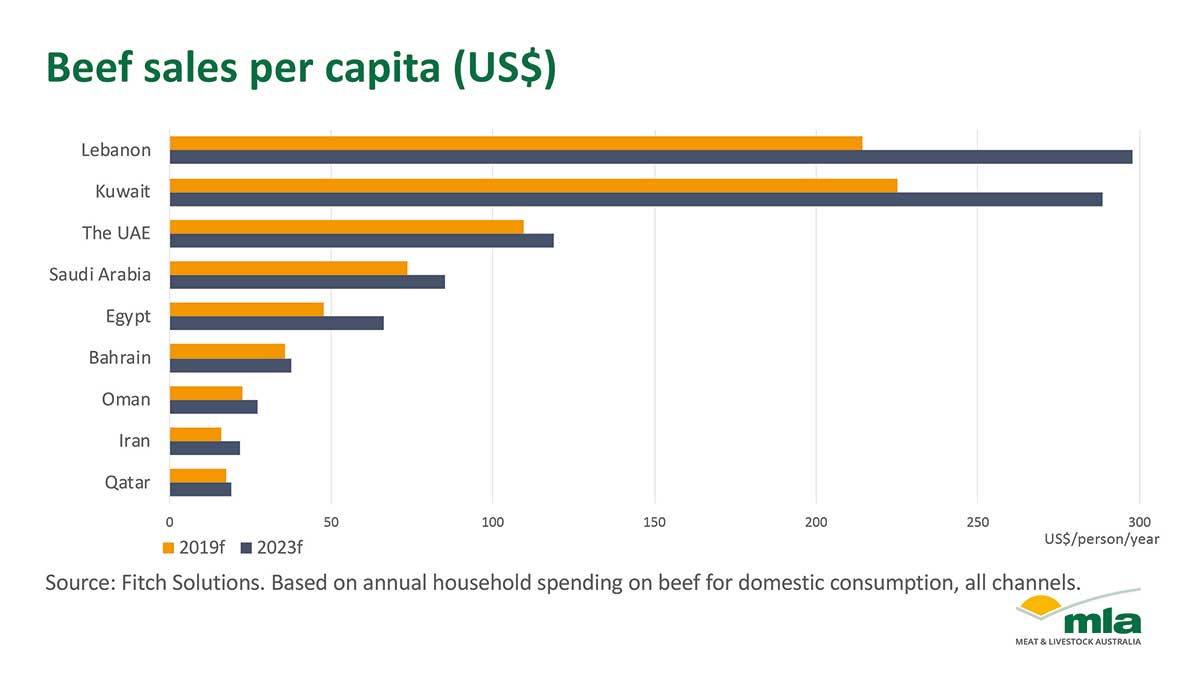Can buyers combine getting the best value for money with satisfying consumer demand for healthier options or do they need to spend more to do so? HN gets to the bottom of the organic meat question: what is it and is it really more beneficial for our health?


In food, the vegan/plant-based juggernaut is showing no signs of abating and this year many F&B outlets added plenty of interesting options to their product lines, especially as meat replacements gain significant market share. Both a diet and a lifestyle, individuals from all walks of life are embracing these various trends, which in recent years have seen local restaurants offering new menu items and supermarkets dedicating entire sections to satisfy this kind of demand. HN talks to industry experts to understand how this trend is affecting the current market, what the barriers to entry are and what will be some of 2019’s trendiest food options.
What are some of the most striking market trends in the Middle East?
The Middle East region, specifically the food service industry, prefers U.S. beef because suppliers offering this brand guarantee that customers will walk away with a positive experience each time. We also see a demand for similar products across the region, such as ribeye, strip loins and tenderloins for steak house food service concepts. USMEF has tried to introduce new cuts into the region as well as helping to diversify the products offered from the U.S. These have excellent eating quality, but are sold at a more cost effective price point than some of the traditionally purchased cuts.
Do you have an ‘organic’ line of meat(s) and how popular are these in the region?
There are U.S. exporters who offer organic products, as well as other branded products with specific label claims i.e. natural. Currently, organic and natural production is a small percentage of the beef we produce and constitutes a small portion of total U.S. beef exports to the Middle East. However, there are companies who have found marketing channels for these products and are trying to service what is now a niche market. This product is sold at a bit of a price premium to the product normally exported into the Middle East, so growth of these products has been slow. As demand grows for these products in the region, there are exporters in the U.S. who are well positioned to take advantage of potential demand increases in the coming years.

Dr. Travis Arp
Senior Director, Market
Access and Export Services
US Meat

Sam Gill
Business Development
Manager, MENA
Meat and Livestock Australia
What red meat products does Australia offer consumers seeking healthier life choices?
Globally there is a ‘healthification’ megatrend, where some people seek leaner, ‘free from’ grass-fed beef and lamb. Others still enjoy high quality grain fed beef but in smaller volumes and consumed occasionally rather than frequently. However, this trend should be considered in perspective – for example, MLA research shows that in the UAE and Saudi Arabia, consumers are over 3 times more concerned about the health impacts of consuming too many sweet or processed foods than they are concerned about eating meat. This partly explains why, across the Middle East, the total volume of beef consumed is forecast to see a CAGR increase of nearly 3% over the next 5 years, and 2% for sheep meat (Source: GIRA). This increase is driven by a growing population of younger and affluent consumers with more discretionary income, and with diets shifting to include more cuisines that use red meat. Middle Eastern consumers generally seek meat that is guaranteed halal, is fresh and natural and is from a trusted country of origin. In the past ten years, Australian chilled beef exports has almost tripled to ~12,500 tons, grain fed beef exports grew 17 times to ~8,500 tons and chilled lamb exports more than doubled to ~75,000 tons.
Does Australia have an ‘organic’ line of meat and what future demand do you envision?
Demand for organic products is skyrocketing, with Australian meat export value increasing by 12% over the past 12 months. Consumers are saying when it comes to organic food the perceived main benefits are that they are chemical-free, environmentally friendly and additive-free. It is estimated that some 10% of Australian farmland is under certified organic management and this is growing each year. In 2018, 3% of Australia’s total meat production was certified as organic and valued at A$609 million, with nearly 90% of this value coming from beef and veal. (Source: Australian Organic Market Report, 2019).
Where do you stand on organic and plant-based meats?
High pricing will be an issue for organic meats, as these have not decreased with competition despite the fact that international, regional and local suppliers/producers continue to enter the market. However, I believe that these types of meats will remain a premium product for a niche market. As for plant-based meats, I believe demand for such products will eventually blow over when it comes to the Middle Eastern market. However, international brands might try to push these items to maintain market presence, however this in all probability will only attract trendy fringe/niche customers rather than mass consumers.
What are the obstacles hindering growth of organic products?
There certainly is a growing trend for healthier food choices fueled by customers who are becoming more conscious about what they eat. However, proper accreditation and legislation will need to be implemented in order to maintain transparency of the products available in the market. This will also prevent shady businesses from taking advantage of customers by making false claims about their products. However, I am uncertain to what degree this will help increase sales, as I believe that customers will remain price sensitive and probably choose cheaper and inferior quality products.

Paul Frangie
Chef and Owner
HAPI

Sabine Kassouf
Managing Partner
A New Earth
What are your thoughts on Lebanon’s healthy food market?
The healthy food market is definitely growing in Beirut and we are seeing lots of newcomers who want to ride that wave. Many producers and retailers are doing a fantastic job while others are confusing the consumers by mixing genuine organic products with ‘baladi’-labeled ones that do not necessarily qualify as organic, yet the packaging has a ‘terroir’ look and feel. Another platform being used to promote products under the ‘organic’ umbrella is Instagram, which is booming with ‘home cooks’ who are selling their goods directly from home and labeling them organic, gluten free, dairy free… This kind of promotion is not only unverifiable, but could also lead to serious risks, so consumers beware! In relation to regulating all these products, proper legislation is required, which is still lacking due to the fact that that we do not yet have an official organic certification body and laws are implemented in a biased and illogical way.
What organic meats do you offer and where do you stand on plant-based meat?
A New Earth has a selection of organic and sustainable meat and seafood products. Our meat is Australian grass fed. We also have different types of fish such as Alaskan wild salmon, wild cod and sea bass from the UK’s south coast and organic shrimp from Madagascar. On the other hand, the plant-based meat substitute market is growing, but that does not necessarily imply that such options are healthier than what is already available. Case in point, if you look at the ingredients list, you will find that the offering is beyond unhealthy considering that plenty of additives, colors and flavorings go into the manufacturing. After all, if you are vegan, why would you buy a product that looks, smells and tastes like meat, but is created in a lab with toxic ingredients? Instead, stick to your values and opt for a vegetable patty made with organic legumes and vegetables. This will not only be a healthier choice, but is also one that will directly support your local farmer and is certainly sustainable.
| COMPANY | COUNTRY | WEBSITE |
|---|---|---|
| MEAT & LIVESTOCK AUSTRALIA | AUSTRALIA | mla.com.au |
| AL NABIL COMPANY FOR FOOD PRODUCTS | JORDAN | nabilfoods.com |
| KAYLANI FOOD CENTER | JORDAN | @KaylaniFoodCenter |
| SINIORA FOOD INDUSTRIES P.L.C | JORDAN | siniorafood.com |
| AZZAD TRADING GROUP K.S.C. | KUWAIT | azzadgroup.com |
| FOOD CHOICE GENERAL TRADING & CONTRACTING CO. | KUWAIT | foodchoiceq8.com |
| KUWAIT PROTEINS CO. W.L.L. | KUWAIT | kuwaitproteins.com |
| AL MAWASHI | KUWAIT | almawashi.com.kw |
| KUWAIT AGRICULTURE CO. W.L.L. | KUWAIT | ktagr.com |
| US FOOD SERVICE CO | KUWAIT | usfservices.com |
| OBEGI CONSUMER PRODUCTS S.A.L. | LEBANON | americana-group.com |
| KUWAIT FOOD CO. (AMERICANA) | LEBANON | ocph.com |
| KFF – FOOD & BEVERAGE S.A.L. – UNITED DIST. FOOD | LEBANON | fattal.com.lb |
| PIERRE AZAR TRADING | LEBANON | patrading.co |
| MICHEL NASSIF & FILS S.A.L. | LEBANON | m-nassif.com.lb |
| AL TAGHZIAH | LEBANON | altaghziah.com |
| INTERAL S.A.R.L. | LEBANON | interal-lb.com |
| DAL MARE GROUP S.A.R.L. | LEBANON | dalmaregroup.com |
| DEKERCO S.A.R.L. | LEBANON | dekerco.com.lb |
| FIRST COMPANY | LEBANON | first-company.com |
| LES FILS DE CHAFIC HALWANY S.A.R.L. | LEBANON | halwany.com |
| M.M. SINNO & SONS | LEBANON | mmsinno.com |
| MANYFOOD S.A.R.L. | LEBANON | manyfood.com |
| AMFI | LEBANON | amfime.com |
| MABSOUT & IDRISS S.A.L. / HOSPI FOOD | LEBANON | Tel.: +9611995895 |
| DIAMOND MEAT PROCESSING | UAE | almasadubai.com |
| CERTIFIED ANGUS BEEF LLC. | USA | certifiedangusbeef.com |

















